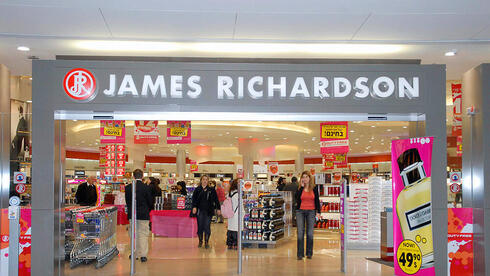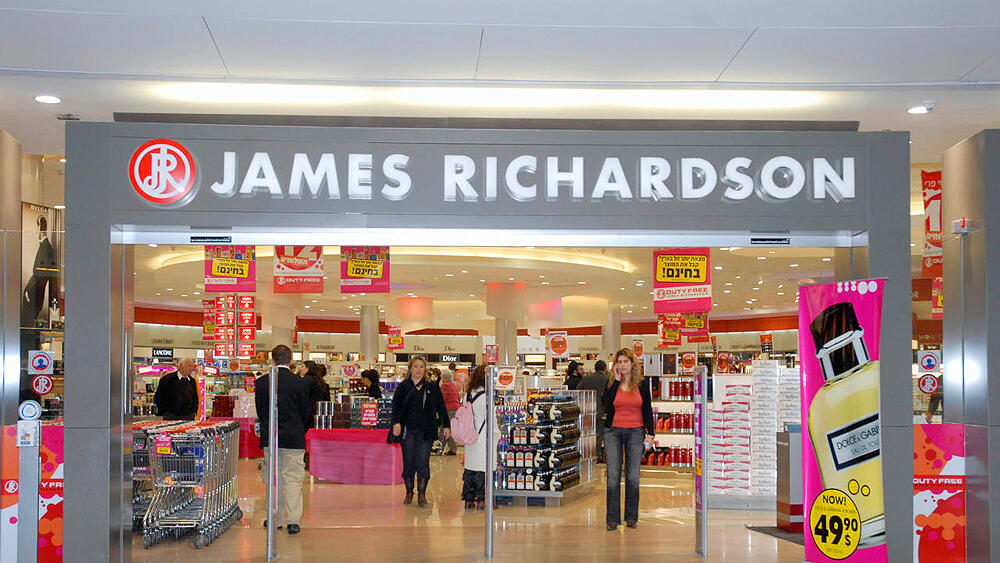
James Richardson exits Duty Free market, turns focus to tech investments
The German Heinemann Group bought another half of the shares of the company that operates the cosmetics, perfumes and drinks store in Israel's international airport and became its sole owner. James Richardson will increase its focus on investing in Israeli high-tech and consulting startups
For the first time since its establishment in 1988, James Richardson will soon no longer manage Duty Free in Israel. The Danos family, which founded the James Richardson cosmetics, drinks and tobacco store in Israel, is selling full ownership to the German Heinemann Group. The family sold half of the holding to the German group in 2016 and is now selling the remaining 50% of the shares. The deal includes the chain's stores in both terminals in Israel's international airport and several additional stores, including the store at Ramon Airport.
The initial agreement between the companies was signed back in May 2023, but it took almost a year to complete it. After the transfer of control to Heinemann, which will continue to operate the store according to the terms of the tender of the Airports Authority, no changes are expected in the management or the personnel situation. In the first phase, the well-known "James Richardson" brand is also expected to be preserved, even though Heinemann stores are better known globally.
James Richardson Israel currently employs about 1,000 people and is headed by CEO Amnon Tagori. The current deal with the Airports Authority, which James Richardson signed in 2017 after it had already become a joint venture with Heinemann, is valid for ten years, i.e. until 2028. Heinemann is one of the largest groups in the world that operate duty stores, including across Europe and the Middle East. The company has stores in more than 300 airports in 90 countries.
According to estimates, James Richardson stores in Israel had an annual revenue of about half a billion dollars before the pandemic, but the royalties they had to pay are about $200 million a year. Due to the high royalties, James Richardson recorded losses in past years despite the high sales. Heinemann ended 2022 with revenues of 3.8 billion euros, which is a considerable improvement compared to the pandemic years, but still less than 2019. The German group, which is a family company founded at the end of the 19th century and still has representatives of the fifth generation of the family in its management, employs over 7,000 people.
James Richardson is an Australian holding group owned by a Jewish family headed by David Mandie until he died in 2011. He established the store in Israel in 1988 and it remains in fact the last duty free store owned by the family, which has left this field in recent years. Since Mandie’s death, the group has been managed by Evelyn Danos, Mandie’s daughter, who serves as chairman. Andrew Danos, grandson of the founder and Evelyn's son, moved to Israel in 2014 and serves as the management's representative here. Upon exiting the duty free business, the family plans to focus on investments in high-tech in Israel.
Andrew Danos has recently invested in four startup companies, mainly in the early stages, and plans to make additional investments. The best-known company in which Danos invested through the venture capital fund Jr. Fund, which was established on the basis of family capital without external investors and manages several tens of millions of dollars, is Tomorrow.io.
At the same time, the James Richardson Group is launching a startup advisory for companies that would like to enter the Australian market. Danos is currently completing the process of sorting the startup companies that have submitted requests for consulting and which they will assist in connecting with distributors and potential customers, mainly in the agtech, fintech and cyber fields.















